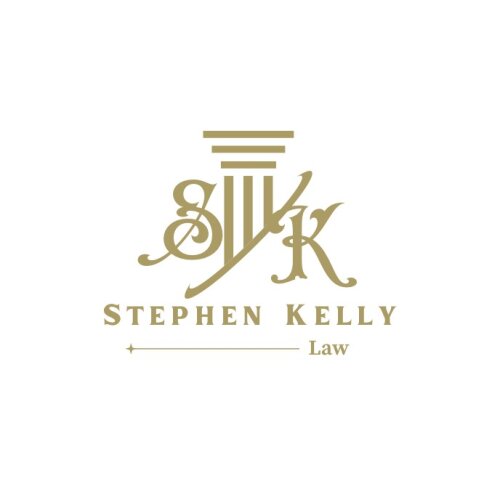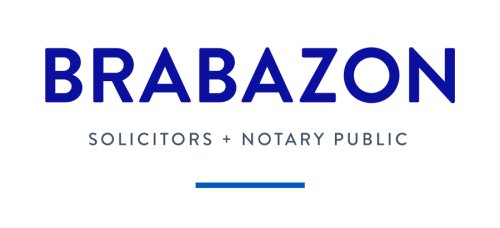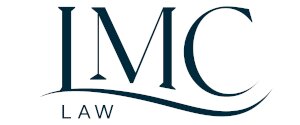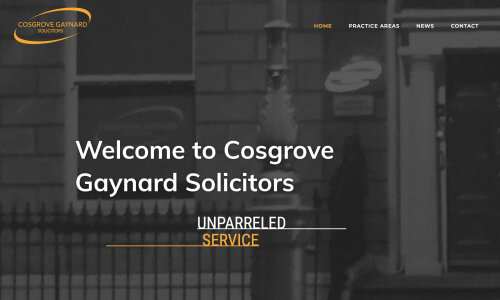Best Foreclosure Lawyers in Dublin
Share your needs with us, get contacted by law firms.
Free. Takes 2 min.
Free Guide to Hiring a Real Estate Lawyer
List of the best lawyers in Dublin, Ireland
About Foreclosure Law in Dublin, Ireland
Foreclosure in Dublin, Ireland, involves the legal proceedings where a lender seeks to recover the balance of a loan from a borrower who has stopped making payments by forcing the sale of the asset used as collateral. Unlike the US system, Ireland does not have a traditional foreclosure process. Instead, the process involves repossession, where lenders secure a court order to take possession of the property. The legal landscape for foreclosure in Dublin is governed by Irish property law, contract law, and various banking regulations.
Why You May Need a Lawyer
Finding yourself in a foreclosure situation can be both legally complex and emotionally distressing. You may need a lawyer if you face any of the following situations:
- You have received a notice of repossession from your lender.
- You are unable to make mortgage payments and are facing potential legal actions.
- You want to understand your rights and options when dealing with mortgage arrears.
- You need assistance in negotiating with your lender for more favorable terms or a payment plan.
- You find any inconsistencies or issues related to your mortgage agreement.
- You want to explore potential defenses against the foreclosure.
- You wish to protect your credit rating and financial future.
A lawyer can provide expert guidance through these legal challenges and represent your best interests in court or negotiation processes.
Local Laws Overview
Dublin, and Ireland as a whole, operates under a specific set of laws and regulations relevant to foreclosure. Key aspects include:
- Land and Conveyancing Law Reform Act 2009: This law defines the legal framework for the repossession process and aims to protect homeowners in financial distress.
- Code of Conduct on Mortgage Arrears (CCMA): Implemented by the Central Bank of Ireland, the CCMA outlines the procedures lenders must follow before starting repossession proceedings, including mandatory engagement and resolution processes.
- Repossession Process: Lenders must obtain a court order to repossess a property. This involves filing a case with the Circuit Court or the High Court, depending on the property value and circumstances.
- Alternative Dispute Resolution: Homeowners can seek mediation or arbitration as means to resolve disputes with lenders outside of the courts.
- Mortgage to Rent Scheme: This government initiative allows struggling homeowners to stay in their homes as tenants, with the property being transferred to an approved housing body.
Frequently Asked Questions
What is the first step if I miss a mortgage payment?
Contact your lender immediately to discuss your situation. Lenders may offer temporary solutions such as payment holidays or restructuring the payment plan.
Can my lender repossess my home without a court order?
No, lenders in Ireland must obtain a court order before they can repossess a property.
How long does the repossession process take?
The process can vary but typically takes several months to over a year, depending on the complexity and the court's schedule.
What is the role of the Circuit Court in foreclosure?
The Circuit Court handles repossession cases where the property value does not exceed €3 million. Cases exceeding this value are handled by the High Court.
Can I sell my property to avoid foreclosure?
Yes, selling your property can be a way to avoid repossession, provided you can sell it for a sufficient amount to repay the outstanding mortgage.
What happens to my credit rating if my home is repossessed?
Repossession can severely affect your credit rating, making it difficult to obtain future loans or credit.
Are there any government programs to help with mortgage arrears?
Yes, the Mortgage to Rent Scheme is a program designed to help homeowners in financial distress stay in their homes as tenants.
Can I negotiate with my lender without a lawyer?
While you can negotiate with your lender on your own, having a lawyer can help protect your legal rights and ensure you receive fair treatment.
What should I bring when consulting a foreclosure lawyer?
Bring all relevant documents, including your mortgage agreement, any correspondences with your lender, and any court notices or legal papers.
Can a lawyer help me keep my home?
A lawyer can help explore all possible defenses and solutions, negotiate terms, and represent you in court, thereby increasing your chances of finding a resolution that allows you to keep your home.
Additional Resources
Here are some resources that can be helpful if you are dealing with foreclosure in Dublin, Ireland:
- Free Legal Advice Centres (FLAC): Provides legal information and advice.
- Money Advice and Budgeting Service (MABS): Offers financial advice and assistance for those in debt.
- Central Bank of Ireland: Information on the Code of Conduct on Mortgage Arrears.
- Citizens Information: Offers comprehensive details on the legal aspects and rights related to housing and repossession.
- Irish Mortgage Holders Organisation: Support and advocacy for homeowners in distress.
Next Steps
If you need legal assistance in foreclosure, here are the steps you should take:
- Gather all relevant documents, including your mortgage agreement, notices from your lender, and any other related paperwork.
- Contact a qualified foreclosure lawyer in Dublin to schedule an initial consultation.
- Prepare a list of questions and concerns to discuss with your lawyer during the consultation.
- Explore your options, including negotiating with your lender, seeking alternative dispute resolution, or defending against the repossession in court.
- Follow your lawyer’s advice and take appropriate steps to resolve the issue in your favor.
Dealing with foreclosure can be daunting, but with the right legal assistance, you can navigate the process more effectively and protect your interests.
Lawzana helps you find the best lawyers and law firms in Dublin through a curated and pre-screened list of qualified legal professionals. Our platform offers rankings and detailed profiles of attorneys and law firms, allowing you to compare based on practice areas, including Foreclosure, experience, and client feedback.
Each profile includes a description of the firm's areas of practice, client reviews, team members and partners, year of establishment, spoken languages, office locations, contact information, social media presence, and any published articles or resources. Most firms on our platform speak English and are experienced in both local and international legal matters.
Get a quote from top-rated law firms in Dublin, Ireland — quickly, securely, and without unnecessary hassle.
Disclaimer:
The information provided on this page is for general informational purposes only and does not constitute legal advice. While we strive to ensure the accuracy and relevance of the content, legal information may change over time, and interpretations of the law can vary. You should always consult with a qualified legal professional for advice specific to your situation.
We disclaim all liability for actions taken or not taken based on the content of this page. If you believe any information is incorrect or outdated, please contact us, and we will review and update it where appropriate.














